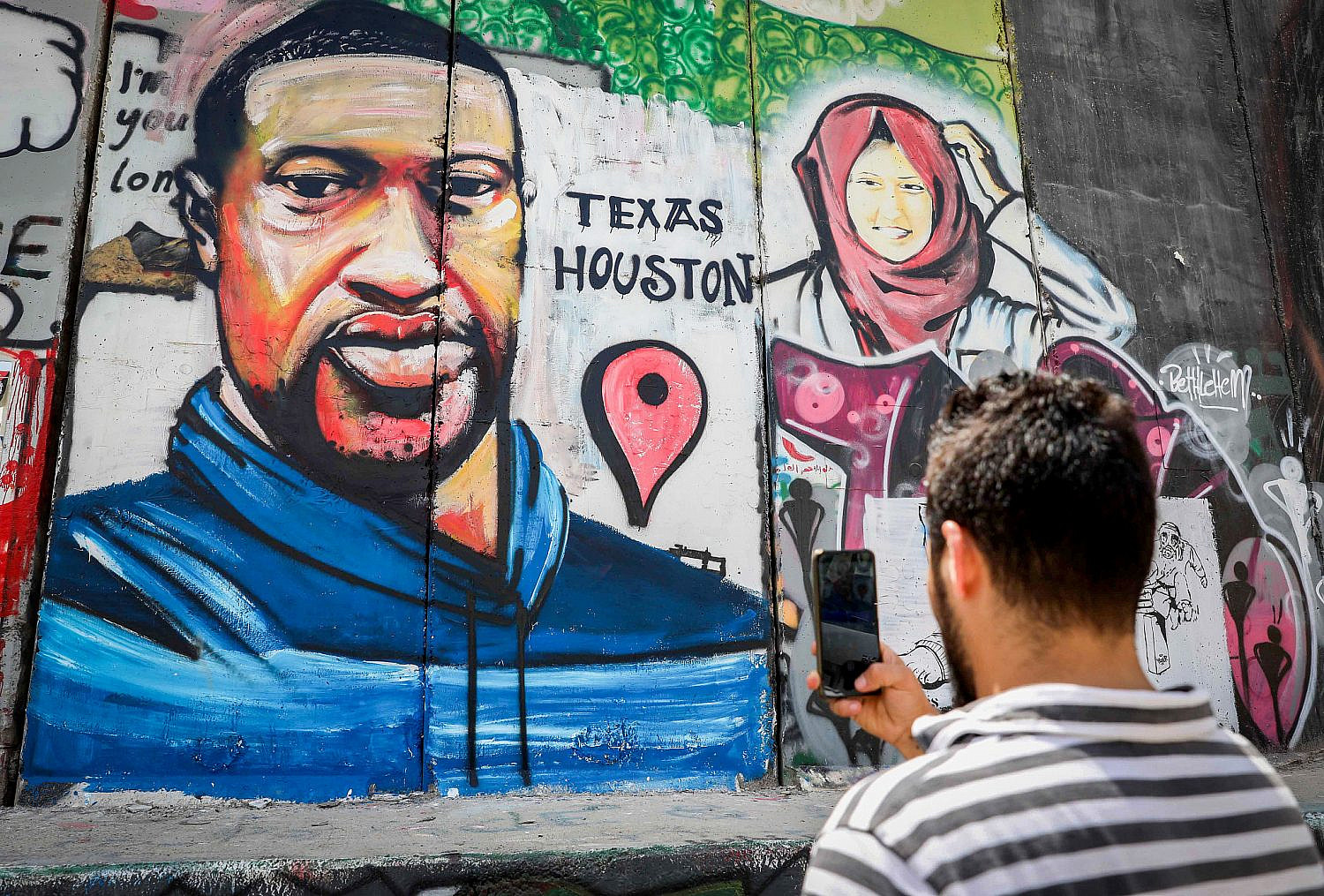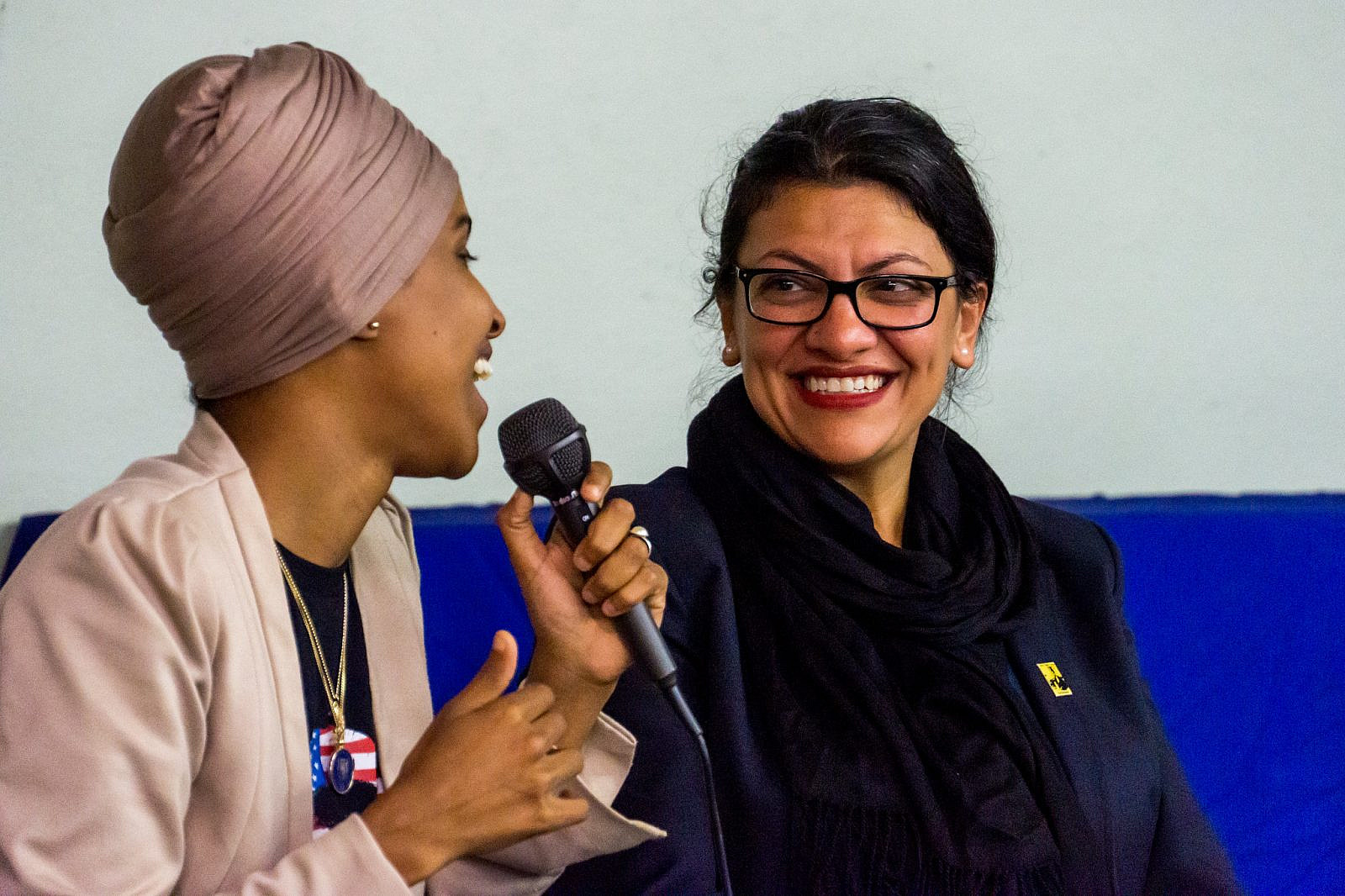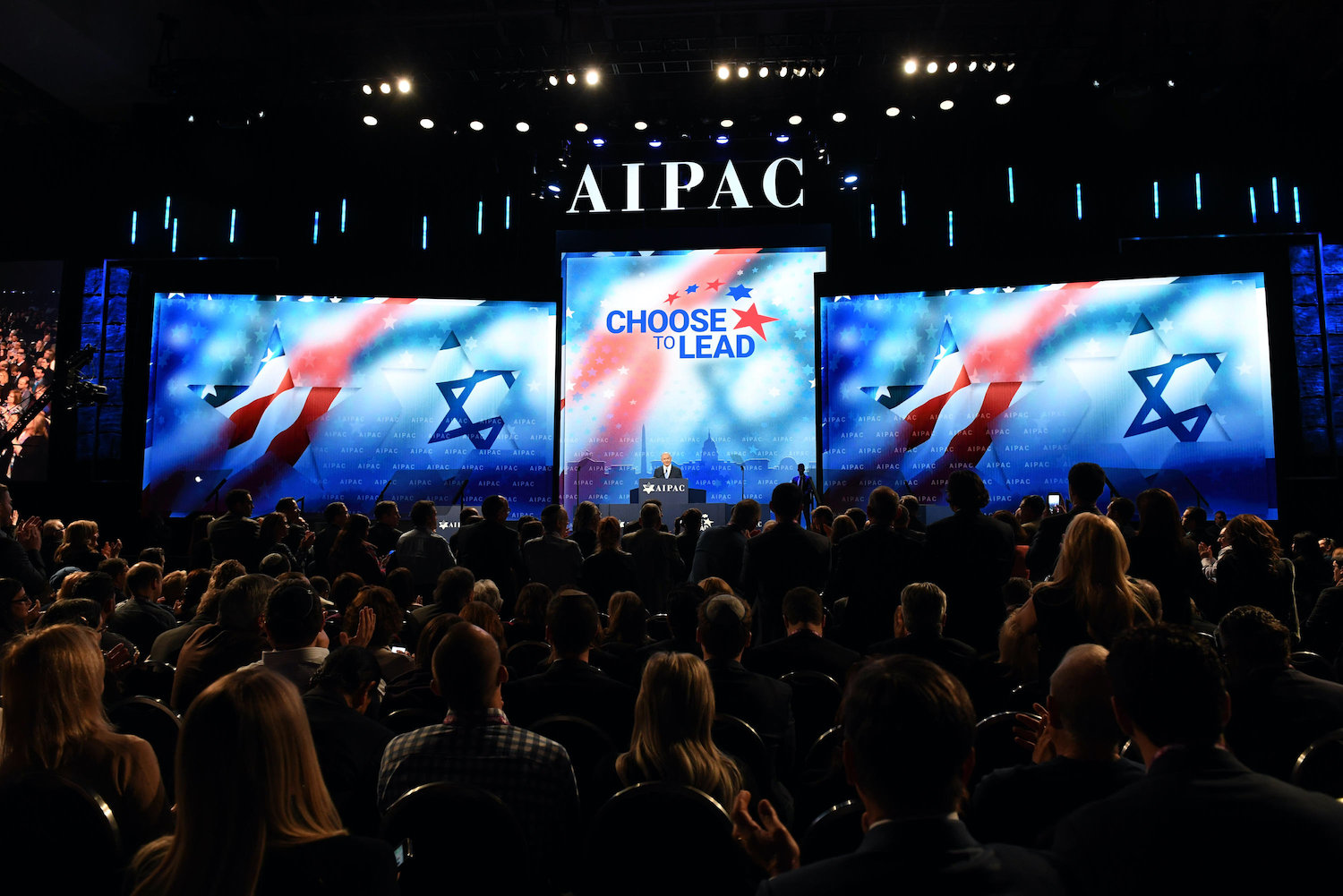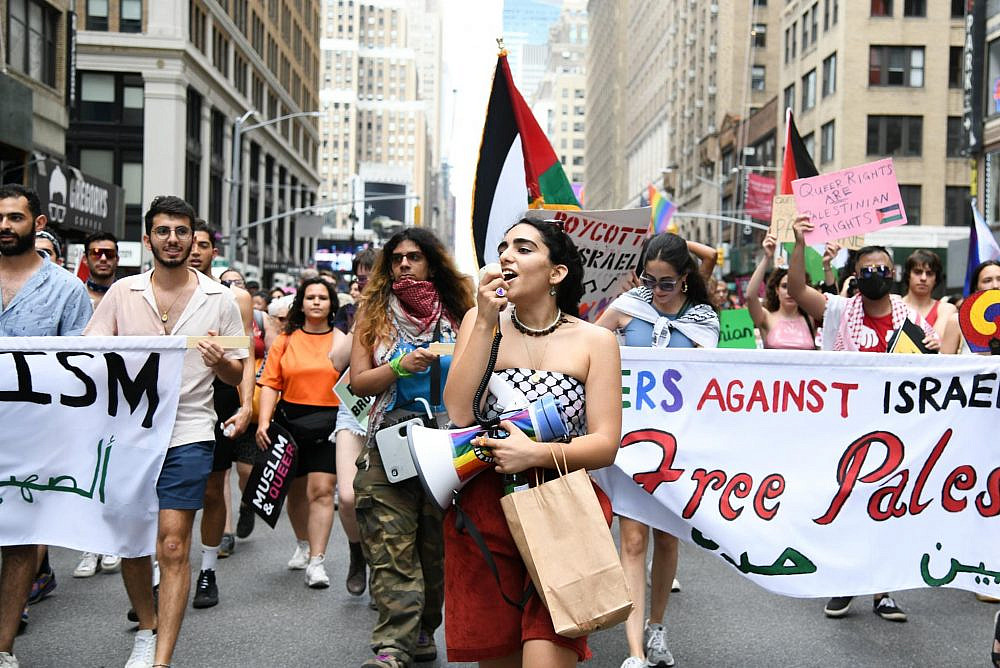Palestinian-Americans are turning the tide of US policy
Overcoming distance and fragmentation, a new generation of diaspora Palestinians is dismantling Israel's monopoly over the U.S. conversation.
The omnipresent restlessness and dread that consumed Palestinian-Americans in May, as we watched Israel’s onslaught on Gaza from afar, could not come close to the pain felt by family and friends with nowhere to hide from the carnage. Still, watching an endless stream of live reports of casualties, videos of children being pulled from mounds of rubble, and fell towers that once housed dozens of families — all interspersed between bouts of radio silence due to Gaza’s daily power outages — was maddening.
For many in the Palestinian diaspora, this enraging feeling is always compounded by a sense of paralyzing helplessness that stems from our physical distance, as we are forced to sit by and watch as Israeli forces pummel what could and should be “home.” The sense that we play only a peripheral role in the Palestinian struggle for liberation perpetually hovers over our heads, mingling with the fierce loyalty we have to a place we cannot return to. And like others, I have often internalized the fragmentation forced upon our people — a divide and conquer tactic that Israel has perfected over the course of decades. Or so we thought.
Over the past few months, the global response to the ethnic cleansing of Jerusalem neighborhoods like Sheikh Jarrah and Silwan, along with Israel’s latest war crimes in Gaza, have shaken the policy of fragmentation that Israel hoped would permanently cripple the Palestinian movement. For what felt like the first time in decades, Palestinians from all geographies rose up in unprecedented scenes of unity, their shared identity superseding their physical and psychological separation under varying forms of Israeli apartheid.
This rekindled energy did not end there: hundreds of thousands of supporters from London to New York took to the streets with newfound vigor, mobilizing what may have been the largest pro-Palestine marches in history. Thousands in Jordan and Lebanon marched toward the borders of northern Israel and the West Bank in what felt like a renewed Great March of Return. All of this emerged despite the continued threat of COVID-19 and the confluence of multiple regional crises, which many believed had eclipsed the Palestinian question.
It is always difficult to shake the sense of powerlessness while watching Israel’s intoxicated war machine from afar. Yet the widespread mobilization of Palestinians and our supporters this past summer has reminded the diaspora of our integral function in the increasingly diverse, global movement for Palestinian liberation. More importantly, Palestinians have proven not only that we are less fragmented than we had feared, but that we are indelibly shifting the narrative around our struggle for liberation.

Many of the reasons for this seismic shift are well-known. The power of social media has broken the hegemony of mainstream outlets, providing alternative sources of news and opinions far from the reach of media gatekeepers. American Jews are increasingly contesting their community’s longstanding support for Israel, with a growing number even challenging Zionism up front. Intersectional activism unleashed by the Black Lives Matter movement, and bolstered by resistance to the resurgent global far right, has pushed Americans to act on the belief that “injustice anywhere is a threat to justice everywhere.” Just as Israeli security forces share tactics with their U.S. counterparts through joint programs, Palestinian and American activists are doing the same for opposing goals — the former toward streamlining oppression, the latter toward liberation.
Perhaps a more significant factor, which is often overlooked, is the emerging collective voice of the next generation of Palestinian-American leaders, activists, and thinkers converging to dismantle Israel’s monopoly over a narrative that has been held hostage for too long. It is not just their audience’s newfound attentiveness that has amplified their efforts. These Palestinians, more equipped than the generation that survived the Nakba of 1948, are motivated by a shared yearning to contribute to the Palestinian struggle and to forge a path to returning to a home from which they are actively barred. Imbibed with stories passed on from their parents and grandparents, and having grown up defending and asserting their identity in an often hostile environment, the Palestinian diaspora is now emerging with new tools to advance their cause, defying Israeli Prime Minister David Ben-Gurion’s hopes that “The old will die, and the young will forget.”
New tools for mobilizing
The discourse around Palestine in the United States has rapidly evolvedsince the 1990s and early 2000s, when public advocacy was pioneered by a handful of figures — icons like Edward Said, Lila Abu Lughod, and Rashid Khalidi — who defied deeply the ingrained anti-Arab sentiment, Islamophobia, and Orientalism that situated public perceptions of the Palestinians. It is on the shoulders of these giants that young Palestinian-Americans today have established and increased their positions of influence, driven by the same urgency that fueled the struggle decades before. Although our physical connection to Palestine is obstructed by our distance and by a regime that prevents our return, assimilation has not fettered our activism.
The current generation of Palestinian-American activists operate in a vastly different political environment from its predecessors. The proliferation of social media has emerged as a game-changing tool for mobilization and networking. Palestinian academics — like Noura Erekat, Sa’ed Atshan, Amaney Jamal, and Beshara Doumani, to name only a few — have taken up prominent teaching and administrative positions at universities across the country. Groups like the Institute for Middle East Understanding (IMEU) and Let’s Talk Palestine have cultivated massive followings online and are playing a pivotal role in directing media conversations and educational initiatives. Organizations like Palestine Legal are stepping in to protect the constitutional rights of activists who face retribution and intimidation by pro-Israel groups, while others like the Adalah Justice Project and the U.S. Campaign for Palestinian Rights are bridging grassroots activism between the United States and Palestine.
Equipped with these new tools and platforms, Palestinian diaspora activists are coordinating with Palestinians on the ground to turn America’s dehumanizing paradigm on its head. In May, for example, videos of far-right Israeli settlers unapologetically justifying their dispossession of families in Sheikh Jarrah, with hundreds marching through the streets of Jerusalem chanting “death to Arabs,” exhibited the racist fervor behind Israel’s ongoing ethnic cleansing. Footage of heavily armed Israeli police shooting tear gas and rubber-coated bullets at worshippers in Al-Aqsa Mosque exhibited Israeli aggression in real time. All the while, young and outspoken activists in Palestine, like Muna and Mohammed el-Kurd, captured audiences on the other side of the world with their eloquence and bravery in the face of retaliation by the Israeli government.
These scenes provided a window through which the world could vicariously live and stand witness to the Palestinian experience, illuminating the stark power asymmetry between Israel and the Palestinians and eliciting visceral reactions as they were circulated at hyper speed. Their immediate effect so unnerved Israeli leaders that then-Justice Minister Benny Gantz reportedly met with social media executives at Facebook, Twitter, and Tiktok to pressure them to remove and censorthousands of posts that exposed Israel’s crimes — to which the companies obliged.
At the same time as support for Palestinians flooded the streets and social media feeds, Palestinian humanity was vociferously defended in the halls of the U.S. Congress — a testament to the small but growing clout of Palestine advocates on Capitol Hill. At the height of Israel’s bombardment of Gaza, representatives like Ayanna Pressley, Alexandria Ocasio-Cortez, Ilhan Omar, Betty McCollum, Jamaal Bowman, and of course, Palestinian-American Rashida Tlaib, took to the House floor and to their Twitter accounts to criticize Washington’s unequivocal support for Israel. In a groundbreaking move, Senator Bernie Sanders and other representatives put forward legislation to block a $735 million arms sale to Israel; though it fell flat during the vote at the time, a similar effort is now being renewed.
There is a long way to go before vocal support for Palestine translates into tangible U.S. policy; and nobody is expecting a small segment of Congressional representatives to overcome decades of uncritical support for Israel and a well-funded pro-Israel lobby overnight. Nonetheless, such public displays of solidarity signify a notable break from the long-held tradition of bipartisan pandering to Israel. It has become increasingly untenable for Americans, especially self-proclaimed progressives, to decry state violence and systemic racism at home while excusing the same abuses that are so emblematic of Israeli society. An increasingly outspoken and popular generation of leaders, backed by hundreds of thousands of invigorated Palestinian- and Arab-American and progressive voters, represents a major step in what will be a long process to come.

This process is already well underway. Although support for Israel remains strong among Americans, particularly conservatives, attitudes had been shifting well before the latest flare-up this summer. According to a Gallup poll from February, about 52 percent of Americans support Palestinian independence, while 34 percent call for more pressure on Israel — the highest level ever recorded. In the same poll, 48 percent of Democrats sympathized more with the Palestinians, compared to 33 percent with Israel. Further data points to a growing generational divide, with younger Americans substantially more sympathetic to Palestinians.
Even more surprising is a stark shift among young evangelical Christians — whose political support for Israel, claimed former Israeli Ambassador Ron Dermer, was more important than that of American Jews. In a recent University of North Carolina study, young evangelical support for Israel plunged from 75 percent in 2018 to 34 percent in 2021. According to a separate study by University of Maryland professor Shibley Telhami, while 40 percent of younger evangelicals in 2015 wanted the United States to lean toward Israel over the Palestinians, only 21 percent shared the same sentiment in 2018; a mere 3 percent of younger evangelicals wanted the United States to favor Palestinians in 2015, rising to 18 percent in 2018.
These shifts are in part a testament to progressive evangelical organizations, like the DC-based Telos Group, that have made inroads with younger evangelicals by addressing issues of social justice and the realities of the Israeli occupation. While this data may not seem particularly promising at face value, these trends among a religious community that believes Israel’s establishment is part of a biblical prophecy that will culminate in the second coming of Jesus Christ is not something to brush aside.
Why the narrative matters
From an early stage, Zionist leaders recognized that their colonial experiment would hinge on the support, funding, and protection of powerful external backers to shield Israel from consequences for ethnic cleansing and other violations of post-war international norms. To achieve this, Israel has had to establish a deeply entrenched cultural hegemony predicated on justifying and normalizing its crimes.
Toward these ends, the Israeli government has employed an array of successful tactics, ranging from AIPAC’s juggernaut lobbying to providing fully-funded trips to Israel for American students and politicians. These efforts have played a critical role not only in whitewashing Israel’s crimes, but in ensuring that Washington continues to provide Israel with $3.8 billion in annual aid and veto UN Security Council resolutions aimed at holding Israel accountable.

With little political or financial leverage, Palestinian grassroots efforts alone do not carry enough influence over their occupier’s chief sponsor. Breakthroughs depend on flipping the global perspective — convincing the right international players to bolster the struggle for national self-determination and equal rights, as they did to help bring an end to apartheid in South Africa. Thus, it is Israel’s dominance not only over the use of force, but over the very framing of the Palestinian struggle, that we must overcome.
This is no easy task. Ultimately, the prospects of shaping our own narrative will depend on the ability of the new generation of Palestinian activists to establish deeper coordination between those in Palestine and across the diaspora. To do so, Palestinians must re-evaluate our political strategy and aims — abandoning the futile two-state process that has dominated our discourse for three decades, and embracing an approach that is predicated around a unified campaign more suited to address the one-state reality that Palestinians have been forced into.
This also means a departure from the antiquated and incompetent “leadership” that has failed to represent or unite Palestinians. As I write this, the Palestinian Authority, which stood idly by as Israel brutalized Palestinians from Gaza to Jerusalem, is once again reminding us of its servility as an arm of the Israeli occupation by killing activists like Nizar Banat, imprisoning human rights defenders like Fadi Quran, and cracking down on peaceful protesters in Ramallah. Despite championing the “resistance” mantle, Hamas has also failed time and again to alleviate the plight of Gazans; and while Palestinians retain the right to resist occupation by whatever means necessary, Hamas’ tactics have only muddied our cause. Just as we condemn Washington’s support for “friendly” dictators across the region, Palestinian-Americans should use our political sway to question how our tax dollars are being used to sustain a Palestinian leadership that has proven hopelessly corrupt and ineffectual at best.
Given the nature of the contemporary news cycle, Palestine will surely rise and fade from the headlines; and just as the tide can turn toward the truth, so too can it turn back. All the while, Israel’s state-sponsored hasbara will undoubtedly double its efforts to silence the Palestinian cause. But even they recognize that the discourse around Israel’s history of ethnic cleansing, apartheid, and war crimes has changed in the United States. Israel advocates can no longer expect to parrot IDF talking points on American television or in New York Times op-eds, and be met with obsequious silence. The past few months have shown the Palestinian diaspora that, although we are far from our homeland, our position in the struggle for liberation is neither peripheral nor helpless.
A lot of work goes into creating articles like the one you just read. +972 Magazine is nonprofit journalism based on the ground in Israel-Palestine. In order to safeguard our independent voice, we are proud to count you, our readers, as our most important supporters.
Become a member of +972 Magazine with a monthly contribution, so that we can keep our journalism as a strong, independent, and sustainable force changing the global discourse on Israel-Palestine.






Geen opmerkingen:
Een reactie posten